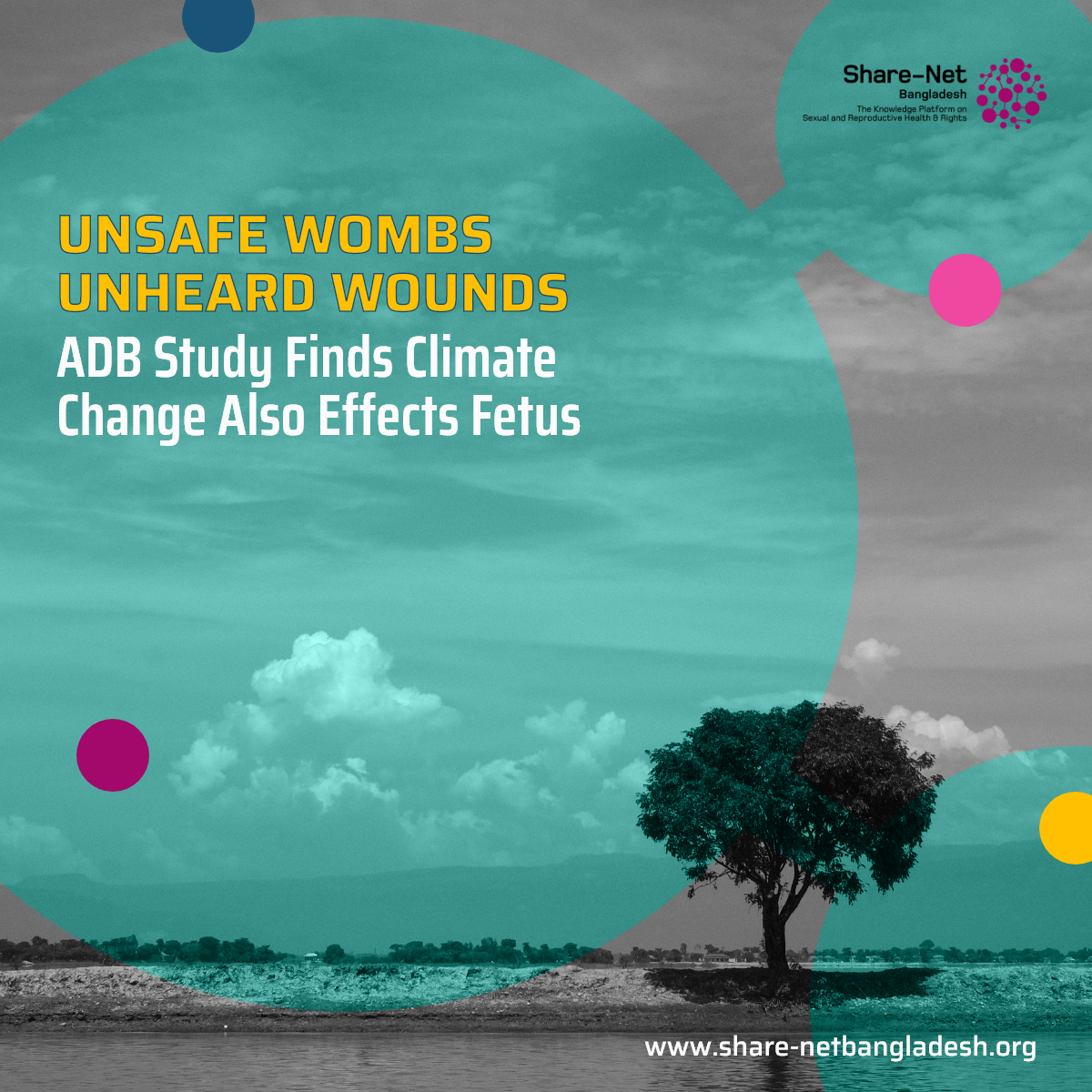Unsafe Wombs-Unheard Wounds: ADB Study Finds Climate Change Also Effects Fetus
Children in the womb are silently becoming victims of climate change, a new study by the Asian Development Bank (ADB) reveals. The research, presented at a roundtable meeting organised by the Policy Research Institute (PRI) in Dhaka, highlights how changing rainfall patterns in Bangladesh are reducing agricultural incomes, leaving pregnant women without access to nutritious food. This is resulting in adverse prenatal health outcomes, leading to malnutrition even after birth.
ADB Senior Economist Minhaj Mahmud, presenting the findings, emphasised the link between declining rainfall and poor maternal and child nutrition in rural Bangladesh. “In areas where rainfall is decreasing, families’ incomes are dropping, leaving pregnant mothers with insufficient nutrition. This affects the health of children even before birth,” he noted.
However, areas benefiting from climate adaptation projects funded by the Climate Change Trust Fund have shown some improvements. Mahmud explained that better agricultural yields and increased incomes in these regions are reducing the prevalence of stunted growth and malnourishment among children. This underscores the critical role of livelihood-focused climate adaptation in addressing health and nutritional vulnerabilities.
The findings have significant implications for Sexual and Reproductive Health and Rights (SRHR) in Bangladesh. Pregnant women in climate-affected rural areas face increased risks of antenatal and postnatal complications due to poor nutrition. The impact of climate change on maternal and child health is a pressing issue, with malnutrition contributing to complications during childbirth and hampering child development.
Experts at the roundtable stressed the need for integrated solutions. PRI Chairman Dr. Zayedi Sattar called for targeted climate policies that address livelihoods and health. “It’s crucial to understand how climate changes are impacting people’s lives and design projects that can help communities adapt,” he said.
Other speakers, including Dr. Ananta Neelim from the University of Tasmania and PRI Executive Director Dr. Khurshid Alam, echoed the urgency of addressing climate-induced disruptions in agriculture and water management. They emphasised the importance of regular research to track the socio-economic impacts of climate change and guide policy interventions.
This study reinforces the call for climate policies that prioritise improving rural livelihoods and ensuring nutritional support for pregnant women and children. Without such targeted interventions, the cascading effects of climate change will continue to undermine Bangladesh’s progress in maternal and child health.
Click here to learn more about our ‘Climate Change and SRHR’ initiatives.
Source: Prothom Alo


